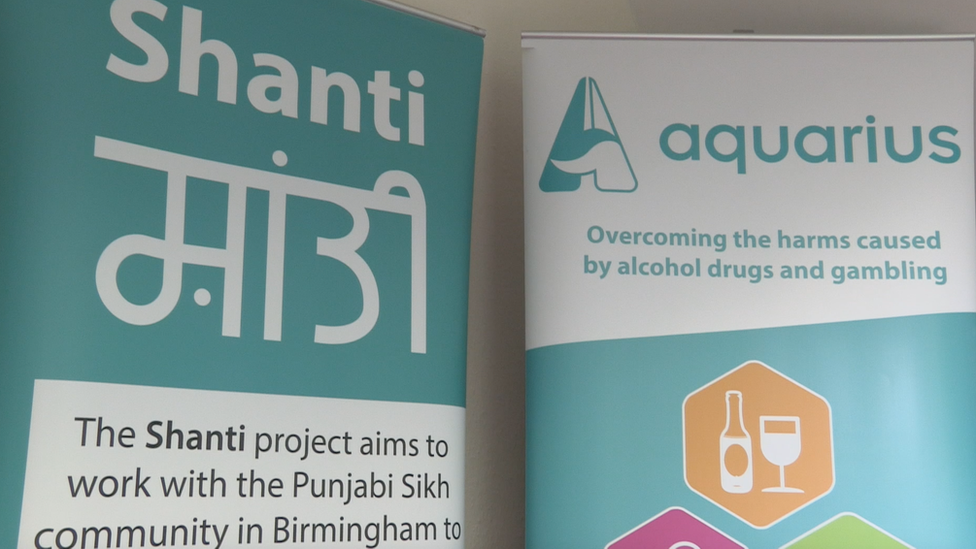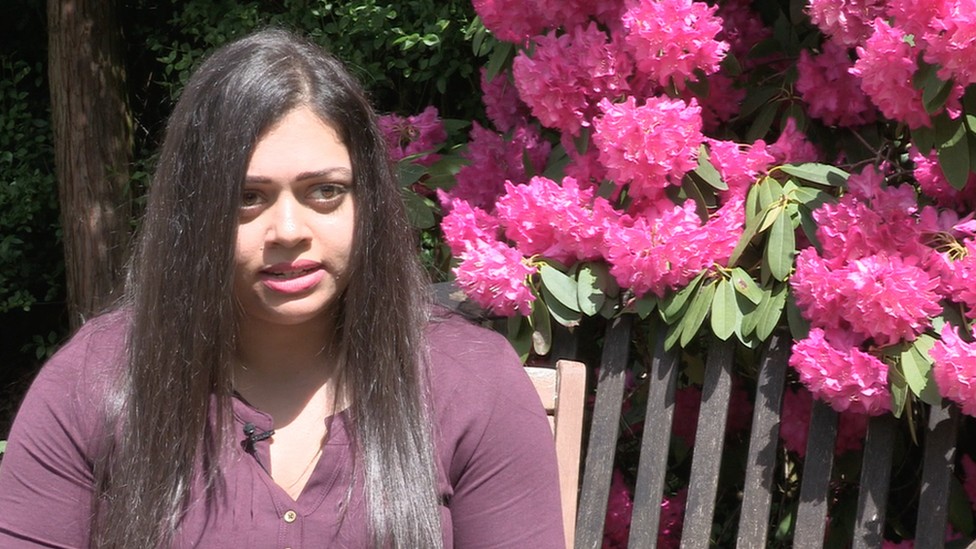The stigma stopping Sikh women getting help with alcohol addiction
- Published

Punjabi Sikh women with drinking problems are less likely to come forward for help because of the fear of stigma and shame, a West Midlands alcohol support group says.
Drinking alcohol is often associated with the Punjabi culture, but is prohibited in Sikhism. Baptised Sikhs are forbidden from drinking but some non-baptised Sikhs do consume alcohol.
Whilst the vast majority of those who do drink have no problem, a small number of Punjabi Sikh women are affected.
Data collected by Birmingham-based charity Aquarius showed 16% of service users who received help for alcohol misuse in 2011-2012 identified as Asian or Asian British.

A small survey, external carried out by the charity found 57% of people from this community, the majority of whom were Sikh, said shame was a reason for not getting help.
Professor Sarah Galvani from Bedfordshire University, who carried out the research, said younger women's drinking was seen to be increasing.
"The reason for that was primarily that these women were growing up in much more westernised communities, where women's drinking was acceptable," she said.
"They were adopting some of those behaviours of the community they were growing up, but still living within a community that had quite traditional views about women's drinking."

Jennifer Shergill from the Shanti project is encouraging people to get help
Jennifer Shergill from the Shanti project, which encourages people to get help with their addictions and offers services in Punjabi, says the issue seems to be religion versus culture.
"Culture is kind of the thing that we need to focus on when we're talking about Punjabi alcohol misuse, the kind of culture that's prevalent in media, when people get together, in weddings and birthday parties, that kind of drinking in social groups," she said.
Pardip Samra, from Edgbaston, Birmingham, is setting up a women-only support group, helping Asian women who may be addicted to alcohol.
She said she also had an issue with drinking.
"I became dependent on it almost every day. I blamed it on work, I blamed it on family but it was never the drink, it was always something else," she said.
Ms Samra believes alcohol dependency-related issues need to be spoken about more and wants other women to know there is help available.

Mandeep's story
Mandeep - not her real name - is a Punjabi Sikh in her 30s. She started drinking alcohol with her friends when in college and 10 years ago realised she had a drinking problem.
"I subconsciously knew my drinking wasn't normal because I could easily consume more than those around me. It's like just drinking to shut off your head and make yourself numb again," she said.
When she told her family she was an alcoholic, some of her relatives were in denial.
"They were like, 'No you haven't, no you haven't'. They didn't really react because they didn't really believe in the fact that it's a problem."
In the past, Mandeep has relapsed but this time, with the help of the Shanti project, she is hopeful about her recovery and wants to help other Punjabi Sikh women like herself in the future.

You can hear the full documentary, The Hidden Alcohol Addiction: Punjabi Sikh Women Speak Out, on the BBC Asian Network iPlayer.